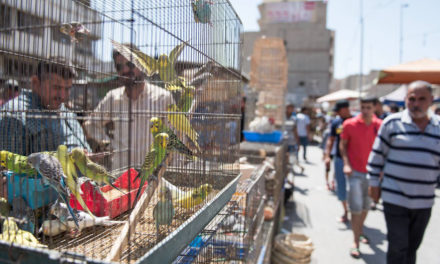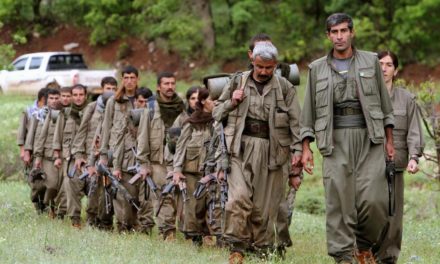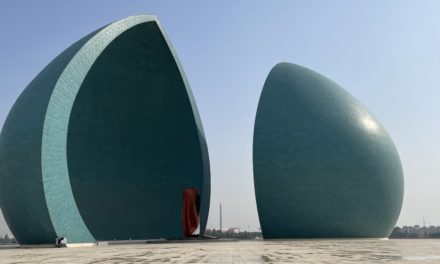Nearly six months after Adil Abd Al-Mahdi resigned and two prime minister designates withdrew their nominations before a vote in parliament could take place, Iraq’s political factions have finally voted on a new government. However, Mustafa Al-Khadimi’s cabinet is not complete as that has become the norm with newly formed governments. In Kadhimi’s case there are seven ministries vacant, the most important ones being the Ministry of Oil and the Ministry of Foreign Affairs.
One important feature of Kadhimi’s government that stands out is that the posts of Ministry of Defense and Ministry of Interior are not vacant. This comes at a crucial time when the security situation has witnessed an increase of terror attacks in specific regions. With the former security chief as head of government, and two professionals from Iraq’s security forces running Iraq’s security ministries, there is an expectation and need for the threats posed by the resurgence of Da’ish to soon be under control again, as witnessed when they were territorially defeated in late 2017.
The confirmation session in parliament also witnessed some notable events. The nomination of Adnan Dirjal, a former star in the Iraqi National Football Team for the post of Minister of Youth and Sports was seen as a break from the norms imposed by the notorious ‘quota system’. Kadhimi who proposed Dirjal for a ministry that was meant to be part of Sunnis share based on the negotiation process is Shi’i in origin. The nomination was supported by Speaker Mohammed Al-Halbousi and his political bloc, who were criticized by other Sunni political leaders for allowing this to happen.
The prime minister also pointed out during his speech in parliament that for the Ministry of Oil, he wanted to make sure that the candidate was from Basra to emphasize he recognizes the province has been underrepresented in the past despite the fact that most of Iraq’s oil wealth is concentrated there. Furthermore, Arshad Al-Salihi, leader of the Iraqi Turkmen Front at the end of the session praised the prime minister’s effort to have a minister of Turkmen origin representing the ethnic group in his cabinet, despite the fact that no agreement had been reached on a certain candidate. Therefore, it is likely that Kadhimi will continue his attempt to choose a Turkmen candidate for one of the vacant ministries.
This shows without doubt that Iraq’s notorious ‘quota system’ provided the main criteria that drove the selection mechanism of the current cabinet, as it was not expected from Kadhimi to be able to escape its grip without fresh elections and with political factions insisting on it, rhetoric aside. Nevertheless, the new prime minister explained in his inauguration speech that he aimed to choose candidates not affiliated to any parties but nevertheless attempted to have a balanced representation of Iraq’s different components in the cabinet. He also promised to continue his negotiation efforts to fill the vacant cabinet posts by the end of Ramadhan, which if achieved, would be considered record time compared to how long it normally takes a prime minister to complete their government in Iraq.
That said, the government formation process will continue after Kadhimi completes his cabinet as the post for the independent agencies like the Popular Mobilization Committee (PMC), the Central Bank of Iraq (CBI), and his old job, the head of Iraq’s National Intelligence Service (INIS), will also be subject to heavy negotiations and are expected to take quite a while. The appointments of these posts will be significant given that the place of PMC in the regional conflict after the assassination of General Qassim Soleimani and Abu Mahdi Al-Muhandis has become an international concern, and the type of nominee for this post will partially reflect Kadhimi’s strategy towards this pressing matter. The new head of PMC should be able to support the effort of institutionalizing this organization and bring about change to reduce tensions around it. The appointment of the head of CBI with Iraq finding itself under huge financial pressure due to low oil prices will also be key to resolving the current financial crisis facing the country. The outgoing government issued recently a temporary shutdown of spending which includes the public payroll. With the state Iraq is in, being the largest employer means that millions of Iraqis will be affected by this decision, at least in the short-term. Last but not least, Kadhimi’s choice for running INIS will be of significance as the new head of intelligence will be expected to continue the effort of his predecessor in reforming the apparatus and play a bigger role in preserving the security of the country.
While Mustafa Al-Kadhimi’s cabinet is not perfect, the conclusion of the struggle over forming a government between the power centers at this particular time is important. The country is incapable of remaining longer in its current situation, and the peaceful transfer of power that took place is a stabilizing factor needed in a country suffering from multi-folded crises.

Muhammad Al-Waeli
Muhammad Al-Waeli is a Ph.D. candidate in management focusing on leadership, reform, and institutions in Iraq.










